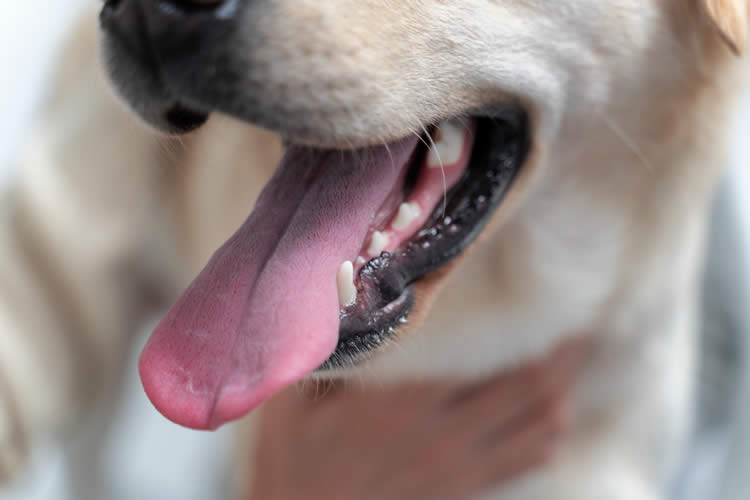Maintaining your dog’s dental health is crucial for its oral hygiene and overall well-being. Just like humans, dogs can suffer from dental issues, and neglecting their teeth can lead to serious health problems.
Fortunately, there are numerous natural methods to keep your furry friend’s teeth clean and healthy, reducing the need for frequent vet visits. Here, we will explore practical and natural ways to ensure your dog’s teeth stay in top condition.
Understanding the Importance of Dental Care
Dental care is often overlooked in pet ownership, yet it plays a pivotal role in maintaining a dog’s health.
Regular dental hygiene helps prevent plaque build-up, gum disease, and tooth decay, which can lead to more severe health complications if left untreated.
The Impact of Poor Dental Hygiene
- Dental Disease: Studies show that a staggering 80% of dogs exhibit signs of periodontal disease by the age of three. This can lead to pain, tooth loss, and infections that may spread to other organs.
- Bad Breath: While many pet owners dismiss bad breath as a minor issue, it can be a sign of underlying dental problems. Regular cleaning can help combat this unpleasant odour.
- Overall Health: Oral bacteria can enter the bloodstream and affect vital organs, including the heart, liver, and kidneys. Maintaining good dental hygiene is essential for your dog’s long-term health.
Signs Your Dog Needs Dental Attention
It’s essential to monitor your dog’s dental health regularly. Look out for the following signs that may indicate dental issues:
- Bad breath that persists despite regular cleaning.
- Red or swollen gums, which may bleed when touched.
- Loose teeth or difficulty eating.
- Excessive drooling or pawing at the mouth.
If you notice any of these symptoms, consult your veterinarian for an evaluation.
Natural Methods for Cleaning Your Dog’s Teeth
There are various natural techniques to maintain your dog’s dental hygiene. These methods can be used individually or in combination to achieve optimal results.
Regular Tooth Brushing
Brushing your dog’s teeth is the most effective way to remove plaque and prevent tartar build-up. While many dogs may resist this initially, with patience and positive reinforcement, it can become a part of their routine.
- Choosing the Right Tools: Opt for a toothbrush specifically designed for dogs. These typically have softer bristles and are angled for easier access to the back teeth. Use toothpaste formulated for dogs, as human toothpaste can be harmful.
- Establishing a Routine: Aim to brush your dog’s teeth daily. If this is not feasible, try to do it at least a few times a week. Start slowly by letting your dog get used to the toothbrush and toothpaste.
Dental Chews and Treats
Dental chews are a popular option for maintaining oral hygiene. These treats are designed to help clean your dog’s teeth as they chew.
- Choosing Quality Chews: Look for dental chews that are free from artificial ingredients and high in protein. Chews with a rough texture can help scrape away plaque while your dog enjoys a tasty treat.
- Incorporating Chews into Their Diet: Offer dental chews as a reward after brushing or as part of their daily routine. This helps reinforce good behaviour and makes dental care enjoyable for your dog.
Incorporating Raw Bones
Raw bones can be an excellent natural cleaning tool for your dog’s teeth. They provide a natural way for your dog to exercise their jaw and help remove plaque.
- Selecting the Right Bones: Always choose raw bones over cooked ones, as cooked bones can splinter and cause injury. Opt for larger bones that your dog cannot swallow whole.
- Supervision is Key: Always supervise your dog while they are chewing on bones to prevent choking or dental fractures.
Fresh Fruits and Vegetables
Certain fruits and vegetables can act as natural toothbrushes for your dog, helping to clean their teeth while providing essential nutrients.
- Carrots: Chewing on raw carrots can help remove plaque and stimulate saliva production, which aids in oral health.
- Apples: Slices of apple (without seeds) can also help clean teeth and freshen breath. The fibrous texture scrapes away food particles and plaque.
Coconut Oil
Coconut oil is a versatile natural remedy that can benefit your dog’s dental health. It has antibacterial properties that can help combat harmful bacteria in the mouth.
- How to Use Coconut Oil: Apply a small amount of coconut oil to your dog’s toothbrush or your finger and gently rub it on their teeth and gums. This can help reduce plaque and freshen breath.
- Incorporating into Their Diet: You can also mix a small amount of coconut oil into your dog’s food as a supplement.
Herbal Remedies
Certain herbs have natural antibacterial and anti-inflammatory properties that can support your dog’s dental health.
- Parsley: This herb can help freshen breath and reduce inflammation in the gums. You can chop fresh parsley and mix it into your dog’s food.
- Sage: Known for its antibacterial properties, sage can be brewed into tea. Once cooled, use it as a mouth rinse for your dog.
Natural Dental Sprays
There are various natural dental sprays available that can help reduce plaque and freshen breath.
- Choosing the Right Spray: Look for sprays made from natural ingredients that are safe for dogs. These can be sprayed directly onto your dog’s teeth and gums.
- Using Sprays Effectively: For best results, avoid letting your dog eat or drink for at least 30 minutes after applying the spray.
Water Additives
Water additives can be an easy way to promote dental health without the need for brushing.
- Selecting a Quality Additive: Choose a water additive that is specifically designed for dogs and contains natural ingredients. These additives can help reduce plaque and freshen breath.
- Incorporating into Their Routine: Add the recommended amount to your dog’s water bowl daily for continuous dental support.
Regular Vet Check-ups
While natural methods are effective, regular veterinary check-ups are essential for maintaining your dog’s dental health.
- Professional Cleanings: Schedule annual dental cleanings with your veterinarian to remove tartar build-up that at-home methods may miss.
- Monitoring Dental Health: Your vet can identify potential issues early, ensuring your dog receives appropriate treatment before problems escalate.
Encouraging Chewing Behaviour
Encouraging your dog to chew can significantly benefit their dental health. Chewing naturally helps remove plaque and strengthens jaw muscles.
- Providing Chew Toys: Invest in high-quality chew toys that are designed to promote dental health. These toys should be durable and safe for your dog to gnaw on.
- Rotating Toys: Keep your dog engaged by rotating their chew toys regularly, preventing boredom and encouraging continued chewing.
Diet Considerations
A balanced diet is crucial for your dog’s overall health, including their dental health.
- Choosing High-Quality Food: Opt for a diet rich in meat and free from fillers like corn and wheat. High-quality dry food can help scrape plaque off teeth during chewing.
- Limiting Sugary Treats: Avoid treats high in sugar, as these can contribute to plaque build-up and dental problems.
Creating a Positive Experience
Making dental care a positive experience for your dog can encourage cooperation and reduce anxiety.
- Using Praise and Rewards: Always praise your dog during and after dental care routines, rewarding them with treats or playtime.
- Establishing a Routine: Incorporate dental care into your dog’s daily routine to normalise the process and reduce resistance.
Our Final Say!
Maintaining your dog’s dental health is an essential aspect of pet ownership that should not be overlooked. By following these instructions, you can help keep your dog’s teeth clean, reduce the risk of dental diseases, and promote overall health.
Remember that consistency is key; regular dental care will lead to a happier, healthier life for your furry companion. Always consult your veterinarian for personalised advice









